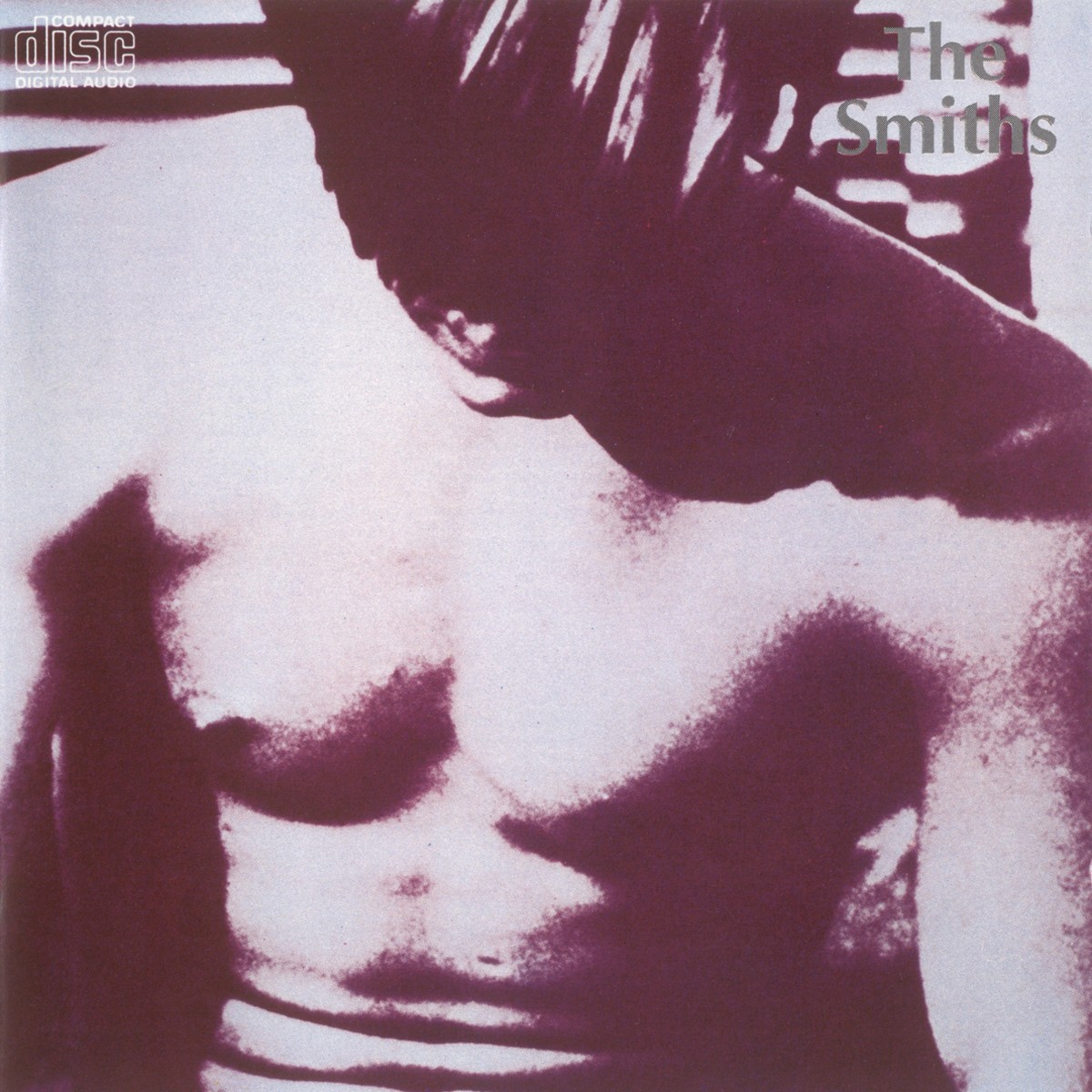The first full length album of The Smiths (self titled The Smiths) turns 30 this February, first entering the UK album charts on February 11 1984—and the music world was forever changed.
I scored a nice original vinyl copy at the Bronco swap meet a few years back for $2—for reals. There it was, in a crate of records off to the side as soon as I walked into the place. On the same pick I got a New Order single and a Los Seven Teens Greatest Hits album. I continued on my little swap meet trip stunned, not saying another word, as the little kid mariachi belted out some tunes by the churro stand.

The Smiths first introduced themselves to the world with a pair of 7″ singles in 1983—”Hand In Glove” and “This Charming Man.” Both were well received and served as an appetizer for something much bigger to come. There was also already a huge buzz around hometown of Manchester about this new gang of lads that were hanging around the scene—Morrissey’s autobiography describes him pre-Smiths traveling in the van with A Certain Ratio to Liverpool gigs and Johnny Marr as the boy-about-town having all the good connections, hooked up their first gigs.
With record labels such as the famous Factory Records in town, and Rough Trade not too far away, bands sprouted like weeds and music electrified the gloomy city. Starting a band and taking a stab at trying to ‘make it’ wasn’t farfetched, since all the means plus the media were already there: journalist, magazines and local Manchester television—Factory owner Tony Wilson had a TV show that featured booming modern bands—music was everywhere. The thing about Manchester then, is that everyone was keeping their eye on them to see what was going to happen next, having already birthed the Buzzcocks and Joy Division so—what else is going on in Manchester?
The media was always ready to see who the next big thing was going to be, and The Smiths’ shows were crammed with journalist snubbing their noses around, documenting what was happening before their eyes, what they’ve been waiting for: the new rock & roll saviors. With all of this in hand, The Smiths already had a good push-start to their career, and all this before their first album was out. Their debut full length would have high expectations as they were already the talk of the town.
After mostly positive notoriety in the press, successful singles and amazing live performances, its time for the Smiths to make the album; it actually took 2 attempts before having the finished product. The first recording sessions were done with Troy Tate (guitarist for Teardrop Explodes) but Morrissey didn’t like it, and the label agreed. The Troy Tate sessions were unheard for a long time but then eventually emerged, existing out there in the world of bootlegs for many years—before the internet came along and made everything so much easier. Many Smiths fans argue that session was far superior.
 For the second attempt at the album, the production duties were handed over to John Porter who was also previously a member of Roxy Music, playing bass on the album For Your Pleasure. Porter had already worked with the band producing a radio session with David Jensen for Radio One.
For the second attempt at the album, the production duties were handed over to John Porter who was also previously a member of Roxy Music, playing bass on the album For Your Pleasure. Porter had already worked with the band producing a radio session with David Jensen for Radio One.
The results infuse the dark poetic words of Morrissey, belted out with conviction, as if he had never been allowed to utter a word in his life and now was a man set free, the chiming jangly Byrds-esque guitar wizardry of Marr along with the solid backbone of the drum and bass duties of Joyce and Rourke. The song “Still Ill” charges on like a runaway train in a dream, has the energy of punk and book-ish intellect, and “This Charming Man” could arguably be their biggest song, ever, with its strong rockabilly bass riff, that is highly underrated and overshadowed by the mastery of Marr and the mystery of Morrissey.
With lyrics needing to be deciphered and new guitar riffs to mimic, the debut had a bombastic effect. Even though Morrissey and Marr later admitted to it having poor production, the impact The Smiths had upon the world once the album hit secured their spot in music history.

